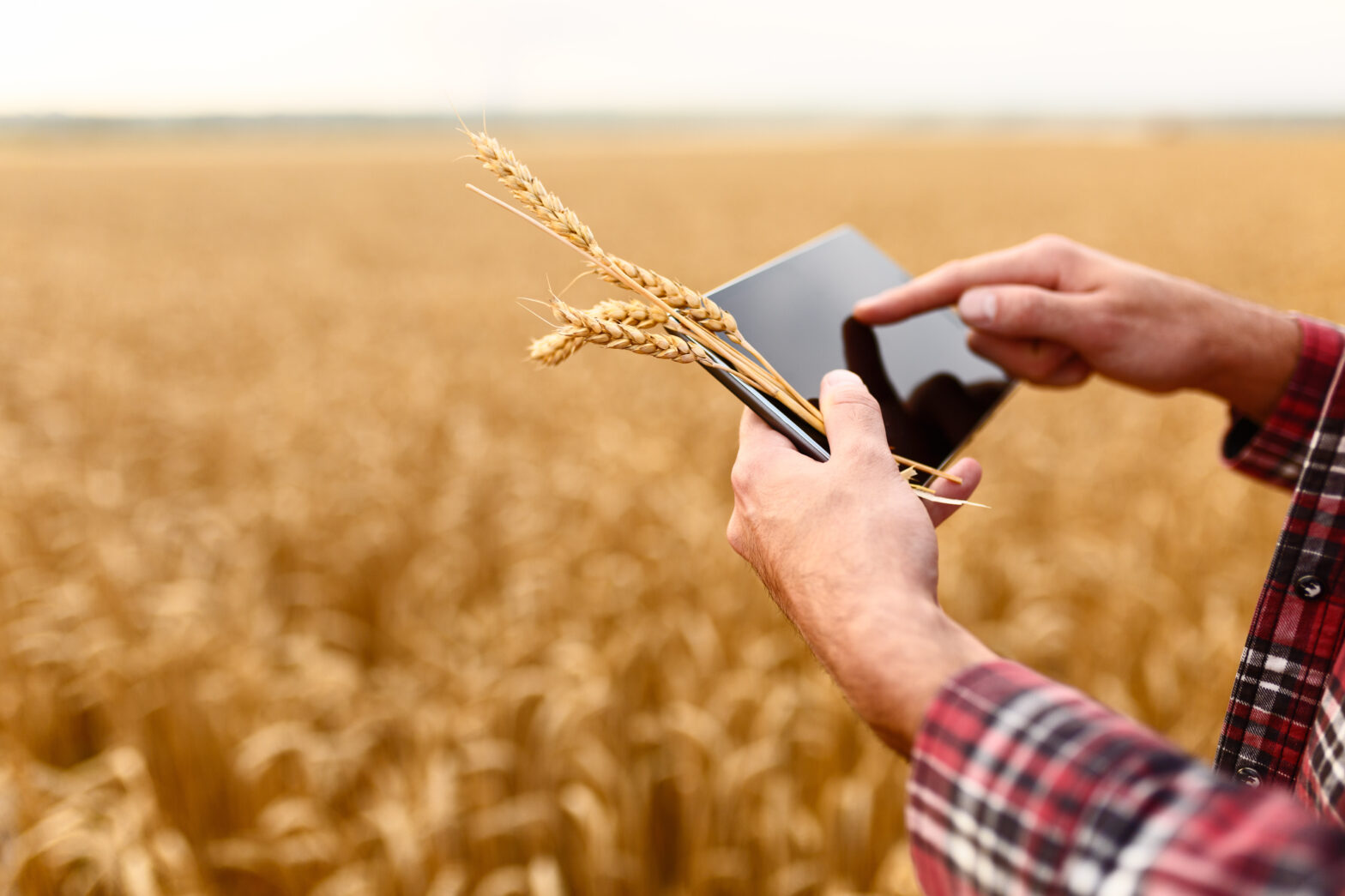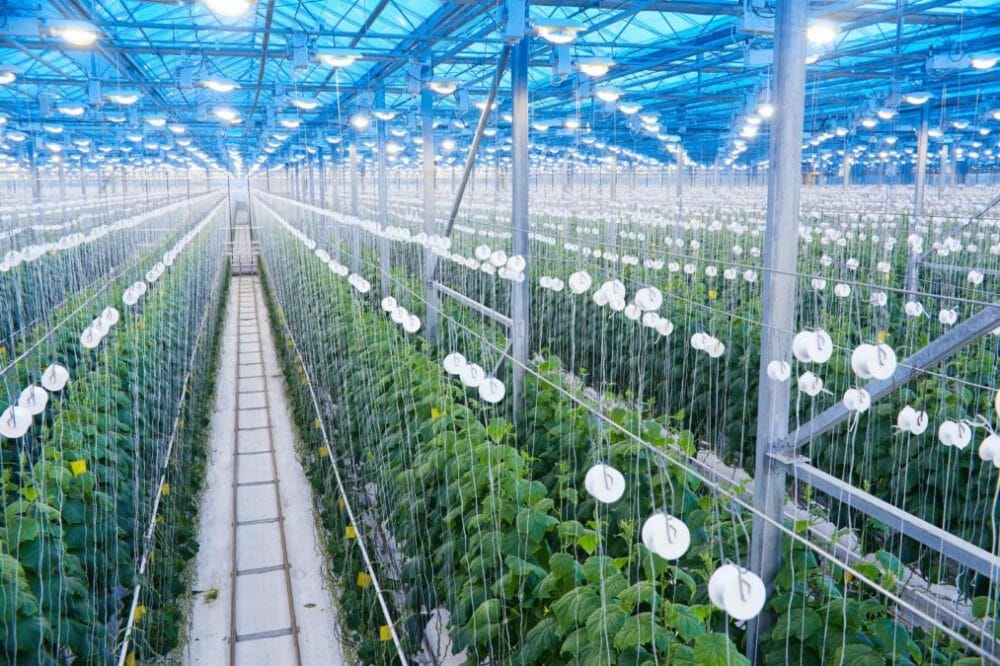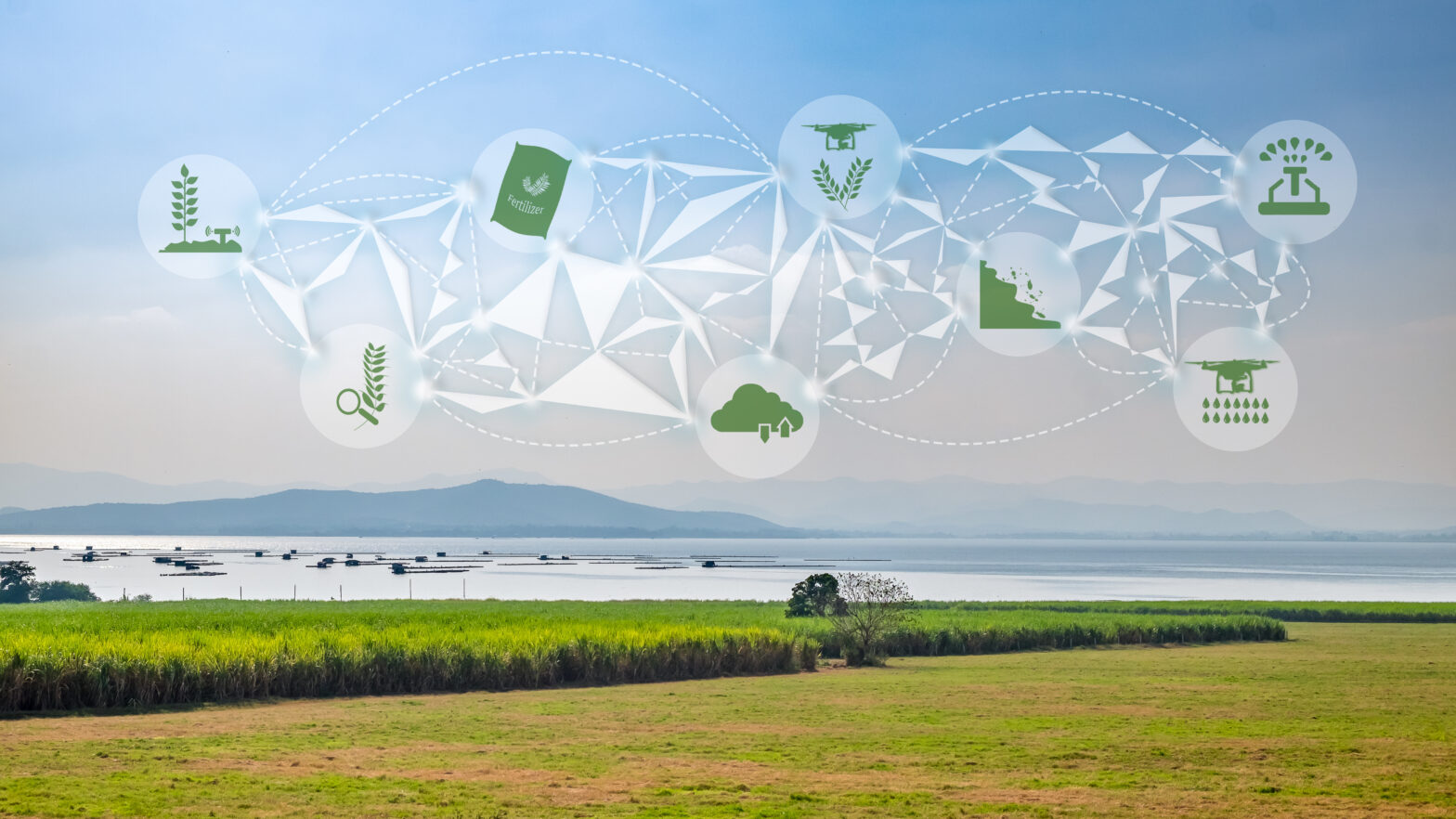The transition among human societies from hunting and gathering to farming was one of the most important events to occur in history. With this new industry came new technology such as the plough, increasing the chances of success in the face of disease, changeable weather and pestilence. Now the world faces new challenges in providing enough food for a global population which is dictated as much by changing consumer choice as much as it is necessity.
>See also: IoT set to fuel the next Green Revolution in the farming industry
Digitisation is finally disrupting the traditional farming sector and key technologies such as Blockchain, big data, precision farming and sensor technology will play an increasing role in the next few years. As farmers and others in the food supply chain embrace technology to drive greater efficiencies, there also will be huge opportunities for technology suppliers and innovators.
Blockchain and big data
The agriculture sector is innately complex with a wide variety of crops, geographic environments and climates. This industry has always been data rich but information poor, since making sense of this data is such a tall ask, but this is changing through the influence of new data management software. Companies are now working with farmers to enable them to use data to better plan seeding, management and harvesting.
However, these companies are also looking to use this data themselves, meaning data protection is likely to be one of the new issues facing the agriculture industry in the next few years. The EU already has the GDPR as a workable template, so it is likely to be ahead of the US as this develops.
Blockchain has already been used to facilitate a shipment of soybeans to the US involved user participation on the Blockchain-based platform by the supplying teams from the US and the buyer in China, with banks issuing and confirming the letter of credit.
>See also: 5 ways blockchain technology is changing the world
The shipping companies participated in the process by issuing all required certificates. The US Department of Agriculture (USDA) then provided insights on how to include phytosanitary certificates in the process.
This deal demonstrated how blockchain technology can streamline many of the complicated processes in international trade, particularly important for commodities traders that operate with high volumes but low margins. We predict further use of Blockchain for agriculture companies will be inevitable to introduce greater supply chain transparency, reduce the risk of food scares and facilitate more efficient transactions.
Precision farming
Another technology farmers are increasingly make more use of is precision farming. This uses real time information from GPS satellites to make informed decisions on when to fertilise and irrigate and what crops to plant at what time of the year. The technology is also closely allied to the use of drones. Already 80% of Australian farmers use GPS on tractors, as do 70% of US farmers, while Brazil and Argentina are also ahead of the curve.
>See also: Rural businesses see digital technology as key to growth
In the US and Europe precision farming will primarily allow farmers to reduce over and under-spraying, meaning less waste for the farmer and lower impact on the environment. This will also help reduce soil compaction by coordinating restricted passage of machinery.
Sensor technology
Remote monitoring is now driving change by allowing farmers to monitor their crops using sensors connected to the internet, either via physical lines, low power radio networks or mobile LTE networks.
Research has highlighted the importance of this technology – there are estimated to be over 40 key decisions that farmers need to make for any one individual crop, and so detailed information on soil acidity, water retention and nutrient levels are all important to the success of the farmer. Farmers can use sensors to map soil types, improve crop yield and enable variable rate fertiliser application over the lifespan of the crop.
Industrial applications of M2M or IoT technology like this will be key over the next 10 years. The impact of consumer technology like smartphones and tablets and improved broadband in rural areas will also mean farmers will access more information via mobile devices to act as decision aids in the field.
>See also: Skills: a major challenge for the European digital economy
In the next few years we will see increased use of sensor systems connected over the internet, more precise seeding and fertiliser spreading and site-specific weed management in crop protection.
The agriculture industry is undergoing significant change through revolutionary digital technologies and there has been a surge of M&A activity as large companies look to future proof themselves by aligning with technology pioneers. It is still in the early phases, but this innovation presents exciting new opportunities for not only food producers but technology providers in associated markets.
Digital agriculture is already demonstrating strong potential in tackling the challenges of global food production and providing lessons in managing complicated processes at scale that the technology industry can learn from.
Sourced by Alan Bullion, Special Reports and Projects director at Agribusiness Intelligence – Informa






